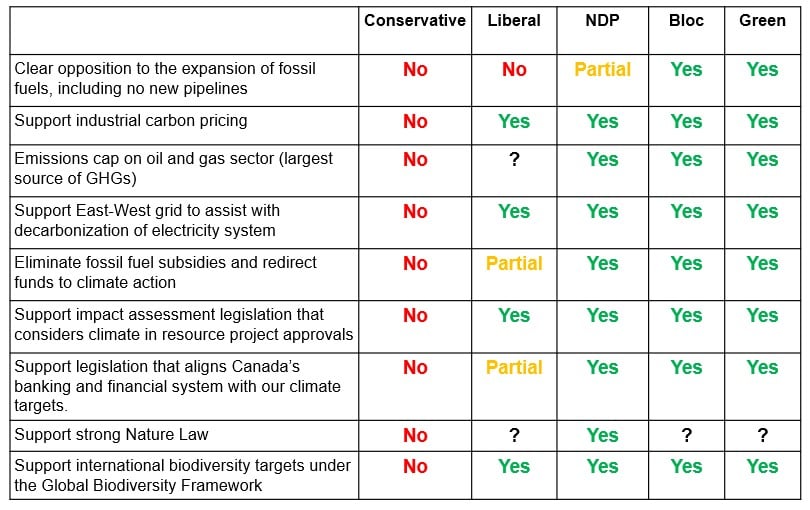TORONTO – New data shows that Canadians overwhelmingly support the core of the new federal anti-greenwashing legislation (Bill C-59), with 93% of Canadians supporting the statement “Companies should face penalties for making environmental claims that they can’t prove are true”, according to a survey conducted by Angus Reid Forum and commissioned by Greenpeace Canada. The poll also found that Canadians were less trusting of oil companies after the companies deleted environmental claims from their websites and social media once the law came into effect. The polling data was included in Greenpeace’s submission to the federal Competition Bureau’s consultation on how they will apply the law.
“Canadians want strong rules to prevent greenwashing and don’t trust oil companies to tell the truth without them,” said Greenpeace Canada senior energy strategist Keith Stewart. “Spending millions to flood the airwaves with greenwashing ads is a key part of oil companies’ strategy to delay action on climate change, so we are urging the Competition Bureau to rigorously enforce truth-in-advertising standards set by international bodies like the United Nations’ anti-greenwashing taskforce.”
The Greenpeace Canada submission to the Competition Bureau consultation included data from a survey conducted for Greenpeace [1] that found:
- One-in-three (31%) Canadians have heard about the new anti-greenwashing laws passed by the Government of Canada.
- Awareness is highest in BC (39%) and Alberta (41%), and lowest in Saskatchewan, Manitoba, and Quebec (all 26%).
- 28% have heard about actions taken by companies to be in compliance with these laws.
- Overwhelmingly, Canadians agree (93%) companies should face penalties for making environmental claims that they can’t prove are true – 66% strongly agree with this, and there are no significant differences in ages and genders.
- As per whether the removal of environmental claims from oil companies’ websites after the anti-greenwashing law passed increases or decreases trust in the environmental efforts of these companies:
- 40% say it decreases their trust.
- 9% say it increases their trust.
- 38% say it has no impact on their trust.
- Younger Canadians aged 18-34 (48%) are by far the most likely age group to say this decreases their trust.
In its submission to the Competition Bureau’s consultation, Greenpeace supports the new legislation and identifies two reputable international standards for evaluating net-zero claims: the Integrity Matters framework established by the United Nations High Level Expert Group on Net Zero Emissions Commitments of Non‑State Entities (chaired by Canada’s former Environment Minister Catherine McKenna) and a framework specific to the oil industry established by the International Energy Agency. As noted in its submission, Greenpeace Canada has assessed net zero claims by Canadian banks and oil companies against these frameworks and found they do not meet these criteria. The Competition Bureau is currently investigating Greenpeace Canada’s 2023 complaint alleging that the ‘net zero’ ad campaign by the six largest oil sands companies (the Pathways Alliance) contained false and misleading claims.
“Canada is finally joining jurisdictions like the EU and Australia that are cracking down on greenwashing,” said Greenpeace Canada legal counsel Priyanka Vittal. “We have proposed ways for these rules to be applied firmly but fairly, so that fossil fuel companies don’t have an unfair advantage against their clean energy competitors.”
ENDS
Notes to editor:
[1] The data are based on a polling hosted by Angus Reid Forum between September 16 and September 18, 2024 among a representative sample of 1,515 online Canadians who are members of the Angus Reid Forum. Detailed data set available upon request.
For more information, please contact:
Laura Bergamo, Communications Campaigner, Greenpeace Canada
[email protected] ; +1 438 928-5237



